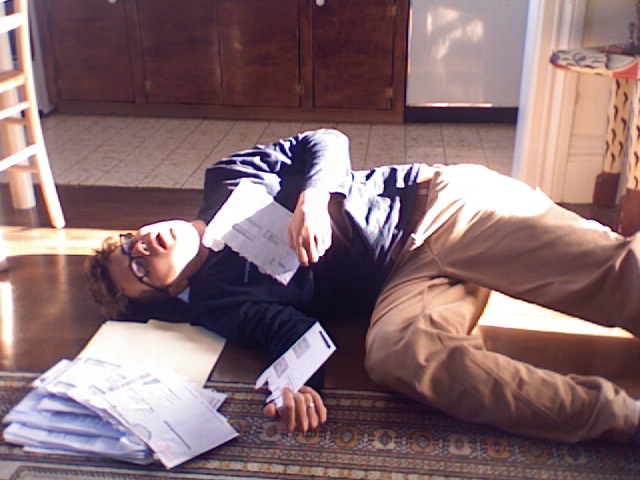By Ashley Mussbacher (The Cascade) – Email
Print Edition: September 17, 2014

I’m almost 25, in my final year of university, on the verge of getting married, and I still have no idea how to do my taxes. I took math until my second year at UFV — numbers don’t scare me. The education system and the government do.
Recent events between BCTF and the government have got me thinking back on my classes and what I learned. One thing has me astounded: how the hell did I make it through 12 years of school without learning the basics of living?
Some of these basics are important financial skills like banking, filing taxes, how to rent a place and what to look out for, how to buy a home and how much to save for it, budgeting, and RRSPs.
When it comes to my taxes, I file them online or through an expensive accountant, but still have no idea how the system works.
Magically, the numbers add up and the government doesn’t “audit” me (a scary term that means I might owe money, and I have to do something in order to not owe money).
I do have basic knowledge of financial systems — I know if I put money into a savings account at the bank, it will grow at a certain percentile (and usually that’s negated by the fees). I knew that not because of the career and personal planning class I took in highschool, but from my own curiosity. When I was saving money at 16, I went into a bank looking lost, and asked a lot of questions.
When I first moved out on my own, not only did I have no idea how to budget, I didn’t know what to keep an eye out for when looking for a place. Those little psychological nudges called “red flags?” My first landlord was a total creep, I paid way too much for the place, and my roommate thought it was okay to have her layabout boyfriend living with us without paying his portion of the rent.
Budgeting is still a problem. Some variables change over time, and some stay constant. Sometimes it’s flexible and sometimes it feels like a noose. We covered a bit of budgeting in high school. The single-page questionnaire asked me what I wanted to do as my dream job and how much I’d make doing it. I wrote: famous writer, $1 million per month. Needless to say, I had no problem paying my cell bill.
I’m not ashamed to admit I still struggle. I feel more like a child every day when I look at how much I don’t understand about the economy I live in, despite my desire to understand it. The little knowledge I do have was hard-earned through failure and not-so-great decisions. I continue to learn with the help of some friends and family who’ve fumbled their way through obstacles before me and have secrets and advice to share.
I did not learn these things in school, and maybe that’s just life. But if the future generation is the foundation of the economy, as it always has been, then shouldn’t the educators and government work together to ensure everyone’s future is secure?

